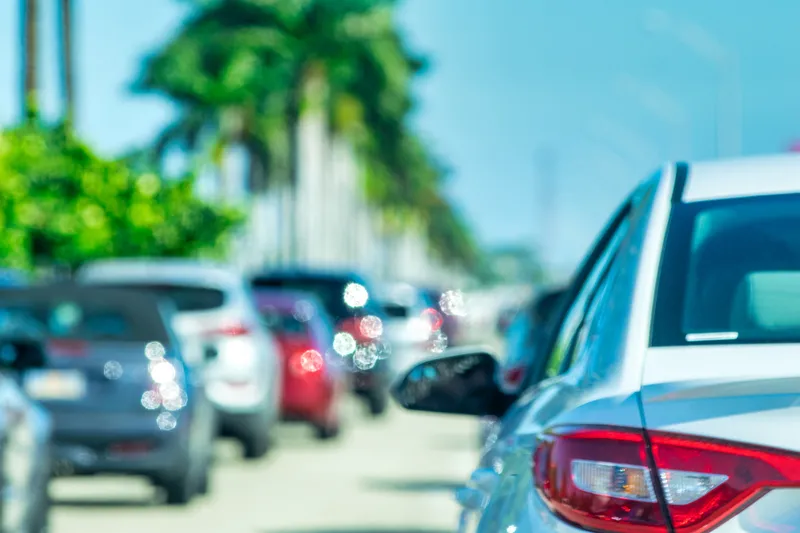
The Big Apple has been talking about congestion pricing for years - but now the prospect is firmly on the horizon.
Governor Kathy Hochul announced that the Metropolitan Transportation Authority (MTA), New York State Department of Transportation and New York City Department of Transportation have released the Final Environmental Assessment for the Central Business District Tolling Program and a draft 'Finding of No Significant Impact', prepared by the Federal Highway Administration (FHWA).
FHWA looked at how the scheme would impact traffic and public transportation for a regional transportation network with 28.8 million journeys per average weekday, 61,000 highway linkage points, 4,600 traffic analysis zones, 44,267 bus stops or transit stations, 4,170 transit routes, and more than a dozen public transportation providers in addition to the MTA, including NJ Transit, ferries and regional bus systems including Westchester County Bee-Line and Suffolk County Transit.
"This is a significant milestone, bringing us closer to a future where New Yorkers have cleaner air, better public transit and less traffic clogging our streets," Hochul said.
"This programme is critical to New York City's long-term success, ensuring our commuters and businesses are able to grow and thrive."
The MTA plus the two state and city DoTs are committing $207.5m over five years "for mitigation measures largely focused on environmental justice (EJ) communities and populations".
This includes a $47.5m for a new low-income discount and $5m for additional monitoring of traffic, air quality, and transit station elements.
FHWA will make a final decision: following an agreement, tolling could begin up to 310 days later, giving contractors time to design, build, test and activate tolling equipment.
During that period, a six-member Traffic Mobility Review Board (TMRB) would develop recommended toll rates along with any potential discounts, crossing credits and/or exemptions.
"The federal government has given congestion pricing another green light, and we're ready to get it done right," says New York City Mayor Eric Adams.
"This about more than reducing traffic. We'll invest in our transit system and clean up the air in the most polluted communities. Building a stronger future means ensuring progress includes everyone, and we don't push consequences into overlooked communities. This plan will serve all New Yorkers and won't leave anyone behind."
The TMRB recommendation would be presented to the MTA Board acting in its legal capacity as the board of the Triborough Bridge and Tunnel Authority, the MTA agency that would collect the tolls.
Following the filing and publication of a proposed tolling structure and a public comment period, the MTA would hold a public hearing before any tolling structure is adopted.
The Central Business District Tolling Program was mandated by the state in April 2019 and modelled on congestion pricing in other cities, with the aim of cutting congestion and raising revenues for improving public transportation.
Vehicles would be charged for travelling in Manhattan, south of - and inclusive of - 60th Street, excluding through-traffic on the Franklin D. Roosevelt Drive, West Side Highway, Battery Park Underpass, and roadway portions of the Hugh L. Carey Tunnel connecting to West Street.
MTA Chair and CEO Janno Lieber says: "Congestion pricing means less traffic, safer streets, cleaner air, more economic opportunity, and better transit."
New York State Department of Transportation Commissioner Marie Therese Dominguez said: "This has been a rigorous process with a robust public engagement and while there is still work left to be done, we will continue to work with our partners and the community to advance this process."
New York City Department of Transportation Commissioner Ydanis Rodriguez adds: "Congestion pricing will improve our quality of life, speed up buses, make our streets safer and our air cleaner."
"This marks a critical step forward in delivering a programme centered on equity and environmental justice. We are a proud partner in congestion pricing and look forward to continuing work with our partners at the city, state, and federal levels to advance the first such programme in the US."









